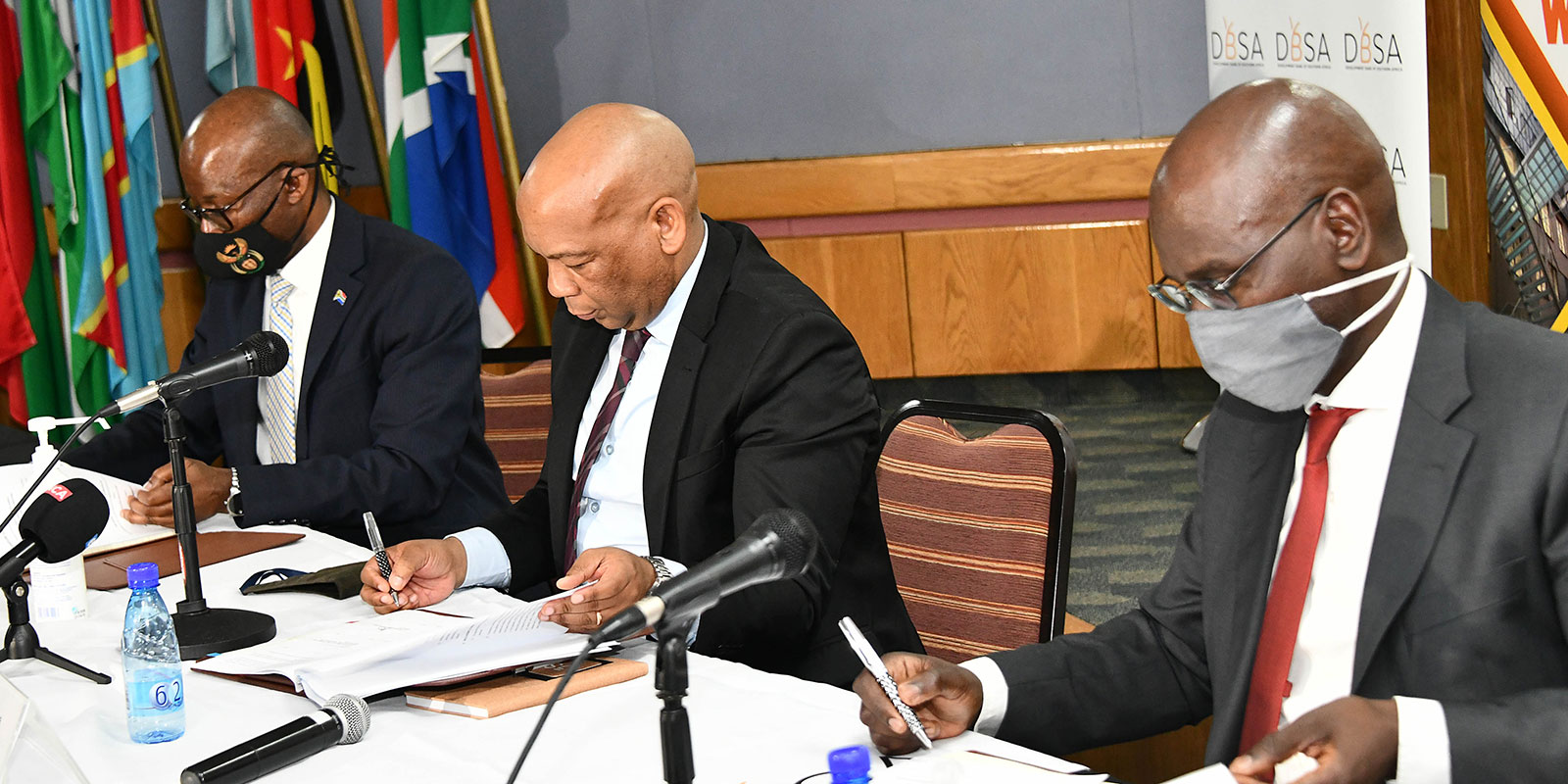Africa has been mercifully spared from the harshest brunt of the pandemic, disappointing those who think all calamities always either start in or must definitely affect Africa the worst. We are puzzled by the incredible efforts of some to find all kinds of rationalisation to explain why not as many people as predicted have either been affected or died in Africa.
Africa has been spared the brunt of the pandemic, disappointing those who think all calamities always either start in or must definitely affect Africa the worst @fmwombeki
Tweet
The experience does not fit the stereotype. Nevertheless, COVID-19 has not left Africa the same, partly because of the reality of globalisation. Africa is in no way less connected to the world than other continents, and is therefore affected by calamities starting elsewhere.
In this think piece for ACCORD’s COVID-19 Conflict & Resilience Monitor, I would like to highlight a few lessons that I believe this pandemic has taught us on our continent.
First, the commitment of African governments to integration was affected by COVID-19. We live on a continent with several regional agreements for integration, mainly through regional economic blocs such as the Southern Africa Development Community (SADC), the East African Community (EAC), the Economic Community of West African States (ECOWAS), etc. Our governments have adopted Agenda 2063 since 2015, with a vision for a peaceful, integrated and prosperous Africa. Among the protocols they have agreed to include are the free movement of people, visa-free travel within Africa and the establishment of the Africa Continental Free Trade Area (AfCFTA). Some regional economic communities have even gone as far as agreeing and launching custom unions, with varied implementation and enforcement mechanisms. While the AfCFTA has been ratified and was supposed to have already launched, many of its timetables were disrupted by COVID-19.
Second, the pandemic has shown us the creativity and ingenuity of Africans. We have seen a resurgence of trust in and development of traditional African medicine and treatment with organic, indigenous means, as well as the industrial production of what we, under normal circumstances, thought we must import from Asia, America or Europe. Africans have designed and produced personal protective equipment of different kinds, hospital beds and other equipment of high quality, sanitation systems for public places, etc.
Our eyes have been opened by the inability to import goods. It is my hope that it will not be only during this difficult time, but that our governments and people will trust local products, as well as make these exchangeable within Africa. As we are gearing towards free trade in Africa, God forbid that trade between African countries will be in goods and materials imported from other continents, while ignoring our own products.
Third, COVID-19 has manifested the fragility of internal peace and security within countries. It is with sadness that we have experienced abuses by security organs in several countries, including the killing of citizens, in pretence of enforcing containment protocols such as curfews and the wearing of masks. In some countries, it was as if these security organs had been waiting for the opportunity to harass and beat people.
Apart from direct brutality on citizens, several countries used the pandemic as a pretext to deny people’s rights and suppress their freedom. Freedom of speech, or political association or assembly, was severely curtailed, and included the suppression of the political participation of people, leaving ruling parties alone with all the channels of communication, while drastically supressing others, particularly those with dissenting or opposing political views.
Fourth, we have seen that the pandemic of corruption is probably more serious than COVID-19 itself. With many African countries sprinting towards unsustainable public debts in competition to become “middle-income countries” by 2025 (as if there is a deadline), COVID-19 opened a new avenue for governments to borrow more in the pretence of saving lives, surpassing their acceptable sustainability levels.
What has annoyed us most is the level of corruption in many countries. Government officials have squandered a lot of money through corrupt procurement and distribution mechanisms, leading to public outcry and resignations in several countries. However, a lot of what was said when seeking grants and loans was not accomplished, and most people never benefited from these loans and grants.
Through ineffective governance systems, a few corrupt officials have drained the funds into big holes, deepening our debt crises. It is a pity that other continents seem to care more about our people, and give us grants, than our own governments. Unless we deal with and eradicate corruption, we should not expect development, and we should not cry to the world to help us and cancel our debts once again.
While we thank God that we are still comparatively safer than other continents, it is important to take such and other lessons seriously for the benefit of Africa.
Rev. Dr Fidon Mwombeki is the general secretary of the All Africa Conference of Churches (AACC).
This think piece is based on a presentation at the TANA Forum, held on 19 October 2020 in Addis Ababa.

